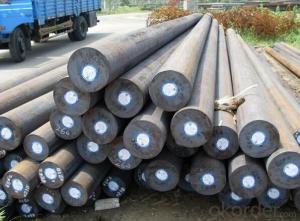Large Stock Grade S45C Mild steel round Bar Sizes
- Loading Port:
- Shanghai
- Payment Terms:
- TT OR LC
- Min Order Qty:
- 3 m.t.
- Supply Capability:
- 100000 m.t./month
OKorder Service Pledge
OKorder Financial Service
You Might Also Like
Item specifice
Large Stock Grade S45C Mild steel round Bar Sizes
Details Information of Large Stock Grade S45C Mild steel round Bar Sizes
| Name | SAE1045 Carbon Steel Round Bar |
| Shape | Round Bar/Square Bar/Flat Bar/Plate/Wire |
| Standard | GB/ASTM/SAE/AISI/DIN/JIS/EN/BS |
| Surface Treatment: | Black/Peeling/Polished/Machined |
| Delivery Condition: | Hot Rolled or Forged/Peeled or Black Surface |
| Test | SGS/UT 100% Elements Testing |
| Certificate: | ISO/Mill Certificate |
| Service: | 24 hours online service / |
| more than 20 years trading and manufacture | |
| Quality Assurance: | the third party inspection, such as SGS, BV, TUV…etc. is acceptable |
| Packaging Details: | Seaworthy Packaging or as per customer's packing instruction |
| Carbon structure round bar | Q195 Q235A Q235B 10# 20#-55# S45CB |
| Low alloy high strength round bar | Q345A/Q345C/Q345D Q345B Q345E |
| Alloy structure round bar | SAE51B20 20Cr 40Cr 40CrV 20CrMo/30CrMo/35CrMo/42CrMo 20CrMoA/30CrMoA/35CrMoA/42CrMoA/42Cr ML20CrMo/ML30CrMo/ML35CrMo/ML42CrMo B7/SCM435-440 20MnTiB 20CrMnMo 20CrMoH 42CrMoH 40MnB/40MnBH 30Mn2-40Mn2 27SiMn 50CrVA 30CrMnTi |
| Pinion steel | 20CrMnTi 20CrMnTiH 20CrMnTiHCS/20CrMnTiHLD Q20CrMnTi-1/Q20CrMnTi-2 |
| Sucker rod | 20-35CrMoA |
| Free-cutting steel | GT1215S |
| Spring steel | 60Si2MnA 65Mn |
| Ball bearing steel | GCr15 |
Chemical Composition of Large Stock Grade S45C Mild steel round Bar Sizes
| C | Si | Mn | P | S | Cr | Ni | Cu |
| 0.17-0.24 | 0.17-0.37 | 0.35-0.65 | ≤0.035 | ≤0.035 | ≤0.25 | ≤0.25 | ≤0.25 |
| Tensile strength (σb/MPa) | Yield strength (σb/MPa) | Elongation (δ5/%) |
| ≥410(42) | ≥245(25) | ≥25 |
Company Introduction of Large Stock Grade S45C Mild steel round Bar Sizes
CNBM International Corporation is the most import and export platform of CNBM group(China National Building Material Group Corporation) ,which is a state-owned enterprise, ranked in 270th of Fortune Global 500 in 2015.
With its advantages, CNBM International are mainly concentrate on Cement, Glass, Iron and Steel, Ceramics industries and devotes herself for supplying high quality series of refractories as well as technical consultancies and logistics solution.
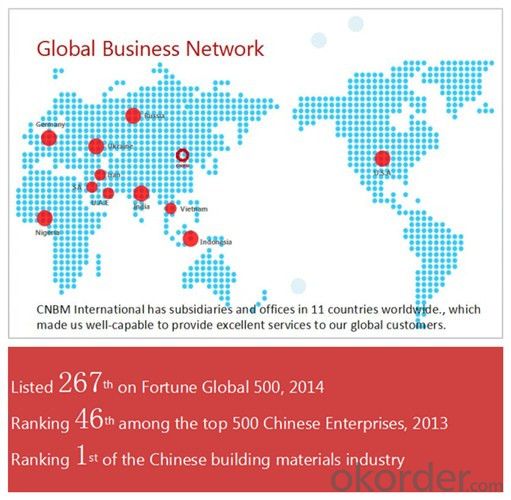
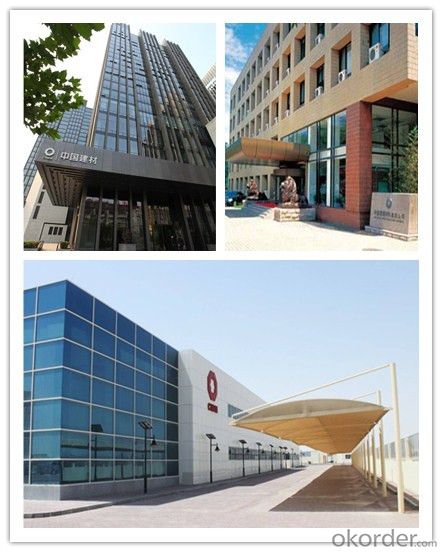
Certificates of Large Stock Grade S45C Mild steel round Bar Sizes
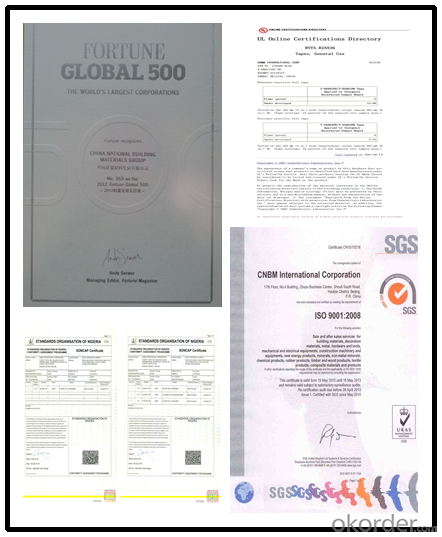
Packaging & Delivery of Large Stock Grade S45C Mild steel round Bar Sizes
Packaging Detail | Sea worthy packing /as per customer's packing instruction |
Delivery Detail | 15 ~ 40 days after receiving the deposit |
Products show of Large Stock Grade S45C Mild steel round Bar Sizes
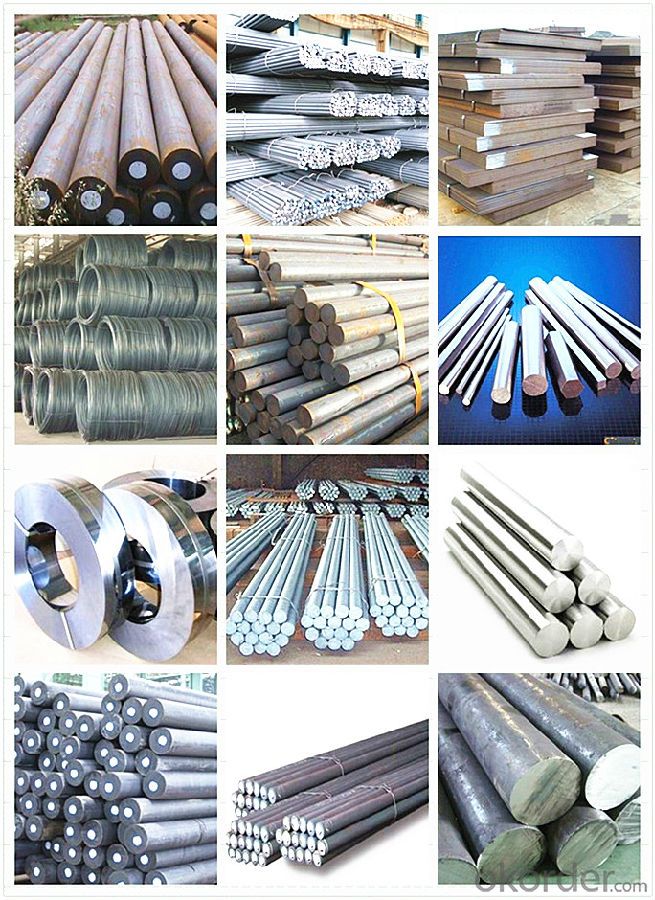
FAQ
Are you a trading company or manufacturer? | Manufacturer |
What’s the MOQ? | 3 metric ton |
What’s your delivery time? | 15-35 days after downpayment received |
Do you Accept OEM service? | Yes |
what’s your delivery terms? | FOB/CFR/CIF |
What's the Payment Terms? | 30% as deposit,70% before shipment by T/T |
Western Union acceptable for small amount. | |
L/C acceptable for large amount. | |
Scrow ,Paybal,Alipay are also ok | |
Why choose us? | Chose happens because of quality, then price, We can give you both. Additionally, we can also offer professional products inquiry, products knowledge train (for agents), smooth goods delivery, excellent customer solution proposals. |
What's your available port of Shipment? | Main Port, China |
What’s your featured services? | Our service formula: good quality+ good price+ good service=customer's trust
|
Where are your Market? | Covering more than 160 countries in the world |
- Q:What are the main factors affecting the cost of special steel?
- The main factors affecting the cost of special steel include the cost of raw materials, such as iron ore and other alloying elements, as well as the cost of energy required for the manufacturing process. Other factors include the complexity of production methods, the level of demand and supply in the market, transportation costs, and any additional costs associated with quality control and compliance with industry standards.
- Q:Can special steel be used for making mining equipment?
- Certainly, mining equipment can be manufactured using special steel. Special steel refers to steel alloys that have been specifically designed and produced to possess certain properties and characteristics that make them suitable for specific applications. In the case of mining equipment, special steel is commonly utilized due to its remarkable strength, toughness, and resistance to wear and corrosion. Mining equipment experiences extreme conditions, including heavy loads, impact, abrasion, and exposure to harsh environments. To ensure durability and performance under these demanding circumstances, special steel grades like high-strength low-alloy (HSLA) steel, tool steel, and wear-resistant steel are often employed in the manufacturing process. By utilizing special steel, mining equipment can withstand the stresses and strains encountered during excavation, hauling, and processing of minerals. It can be used to fabricate components such as bucket teeth, drill bits, cutting edges, and crusher parts that require resistance to wear and the ability to maintain strength even when exposed to abrasive materials. Furthermore, certain types of special steel, such as stainless steel, are especially suitable for mining operations where equipment comes into contact with corrosive substances like acids or moisture. Stainless steel exhibits excellent corrosion resistance, making it ideal for applications such as pipes, tanks, and conveyors used in mining operations. In conclusion, special steel is indeed a suitable choice for manufacturing mining equipment. Its superior strength, toughness, wear resistance, and corrosion resistance make it the preferred option for producing various components and structures used in the mining industry.
- Q:What are the main applications of special steel in the oil and gas equipment?
- Special steel is widely used in the oil and gas equipment industry due to its exceptional properties such as high strength, corrosion resistance, and heat resistance. Some of the main applications of special steel in this industry include manufacturing of drilling equipment, pipelines, valves, fittings, and other critical components. Special steel ensures the durability and reliability of these equipment in harsh environments, such as offshore drilling, where they are subjected to extreme temperatures, high pressures, and corrosive substances.
- Q:What are the advantages of using special steel in industrial applications?
- Using special steel in industrial applications has several advantages. Firstly, it offers exceptional strength and durability, making it suitable for heavy-duty tasks. The unique composition and manufacturing process of special steel result in a material that can withstand high levels of stress, extreme temperatures, and harsh environmental conditions. This makes it ideal for industries such as construction, automotive, and manufacturing, where reliable and long-lasting materials are required. Secondly, special steel exhibits excellent corrosion resistance. It can resist the damaging effects of moisture, chemicals, and other corrosive agents, which is crucial in industries like marine, oil and gas, and chemical processing. The corrosion resistance of special steel reduces the need for frequent maintenance and replacement, saving both time and costs for industrial applications. Furthermore, special steel offers superior machinability and formability. It can be easily shaped, cut, and welded to meet specific design requirements. This versatility allows for complex and intricate designs in various industrial applications, including machinery, tools, and equipment. Another advantage of special steel is its ability to maintain its properties at high temperatures. It has excellent heat resistance, ensuring that it remains strong and stable even under extreme heat conditions. This makes special steel suitable for applications involving high-temperature environments, such as aerospace, power generation, and furnace components. Additionally, special steel can exhibit excellent wear resistance and hardness. It can withstand abrasion, friction, and impact, making it ideal for applications where materials are subjected to heavy wear and tear, such as mining, construction equipment, and cutting tools. The wear resistance of special steel ensures that components have a longer lifespan and require less frequent replacement. In conclusion, the use of special steel in industrial applications brings forth exceptional strength and durability, corrosion resistance, machinability and formability, heat resistance, and wear resistance. These properties make special steel a preferred choice for a wide range of industries, contributing to improved performance, longevity, and cost-effectiveness.
- Q:What are the different methods for joining special steel components?
- There are several methods for joining special steel components, each with its own advantages and limitations. Some of the common methods include: 1. Welding: This is one of the most widely used methods for joining steel components. It involves melting the edges of the components and fusing them together. Welding can be done using various techniques such as arc welding, gas welding, or laser welding, depending on the specific requirements of the project. 2. Bolting: Bolting involves using bolts, nuts, and washers to join steel components together. This method is preferred for applications where disassembly or maintenance may be required. It provides a strong and reliable connection but may not be suitable for high-stress applications. 3. Riveting: Riveting involves using metal fasteners called rivets to join steel components together. This method is commonly used in applications where high strength and resistance to vibration are required. Riveting is a permanent joining method that provides a strong and durable connection. 4. Adhesive bonding: Adhesive bonding involves using high-strength adhesives to join steel components together. This method is preferred for applications where aesthetics and weight reduction are important. Adhesive bonding can provide a strong and durable connection, but the surface preparation and adhesive selection are critical for ensuring the bond's strength. 5. Mechanical fastening: Mechanical fastening methods, such as using screws or clips, can also be used to join special steel components. This method is often used for temporary connections or for components that need to be easily assembled and disassembled. Each joining method has its own advantages and considerations, and the choice of method depends on factors such as the specific application, load requirements, lifespan expectations, cost considerations, and the nature of the steel components being joined. It is important to carefully evaluate these factors and consult with experts to determine the most suitable joining method for a given project.
- Q:What are the requirements for special steel used in pharmaceutical manufacturing?
- The pharmaceutical manufacturing industry demands stringent requirements for special steel. To guarantee the safety, purity, and effectiveness of the products, the steel must adhere to specific specifications and meet various criteria. Foremost, the steel used in pharmaceutical manufacturing must be of top-notch quality and possess exceptional corrosion resistance. This is vital to prevent any contamination or reaction with the pharmaceutical compounds or chemicals involved. It is imperative that the steel does not release any impurities that could compromise the purity of the final product. Additionally, the steel must be capable of withstanding high temperatures and pressures, as pharmaceutical manufacturing processes often involve heat treatment, sterilization, and other high-temperature operations. It is crucial that the steel maintains its structural integrity and does not affect the quality of the pharmaceutical products under these conditions. Another significant requirement for the steel used in pharmaceutical manufacturing is easy cleanability. The steel should have a smooth surface without any cracks, crevices, or rough areas that could trap bacteria, contaminants, or residues. This is essential to maintain the hygiene and sterility of the manufacturing environment and ensure that the pharmaceutical products meet the highest quality standards. Furthermore, the steel must comply with regulatory standards and industry guidelines. It should meet the specific requirements set by regulatory bodies such as the Food and Drug Administration (FDA) or the European Medicines Agency (EMA). These standards often include specifications regarding the composition, mechanical properties, and traceability of the steel. In conclusion, the requirements for special steel used in pharmaceutical manufacturing are strict and encompass factors such as top-notch quality, corrosion resistance, heat resistance, cleanability, and compliance with regulatory standards. Meeting these requirements is vital to guarantee the safety, purity, and effectiveness of the pharmaceutical products manufactured using this steel.
- Q:Can special steel be used in the wind turbine manufacturing industry?
- Yes, special steel can be used in the wind turbine manufacturing industry. Special steel offers superior mechanical properties such as high strength, corrosion resistance, and durability, making it suitable for various components used in wind turbines, including tower structures, shafts, gears, and bearings. By using special steel in wind turbine manufacturing, the industry can enhance the performance and longevity of these renewable energy systems.
- Q:How does special steel perform in high-temperature oxidation conditions?
- Special steel performs well in high-temperature oxidation conditions due to its exceptional resistance to oxidation and formation of protective oxide layers, which helps prevent corrosion and maintain its strength and integrity even at elevated temperatures.
- Q:Can special steel be used in the oil refinery industry?
- Yes, special steel can be used in the oil refinery industry. Special steels, such as stainless steel and duplex stainless steel, offer superior corrosion resistance and high strength properties, making them suitable for various applications in oil refineries. These steels can withstand harsh operating conditions, including exposure to corrosive chemicals and high temperatures, ensuring the durability and safety of equipment and infrastructure in the oil refinery industry.
- Q:What are the different types of tool and die steel?
- There are several different types of tool and die steel, including high-speed steel, carbon steel, and alloy steel. High-speed steel is known for its ability to maintain hardness and withstand high temperatures, making it suitable for cutting tools. Carbon steel is often used for dies and punches due to its toughness and wear resistance. Alloy steel, which is a combination of iron and other elements, offers enhanced strength and durability, making it ideal for various tool and die applications.
1. Manufacturer Overview |
|
|---|---|
| Location | |
| Year Established | |
| Annual Output Value | |
| Main Markets | |
| Company Certifications | |
2. Manufacturer Certificates |
|
|---|---|
| a) Certification Name | |
| Range | |
| Reference | |
| Validity Period | |
3. Manufacturer Capability |
|
|---|---|
| a)Trade Capacity | |
| Nearest Port | |
| Export Percentage | |
| No.of Employees in Trade Department | |
| Language Spoken: | |
| b)Factory Information | |
| Factory Size: | |
| No. of Production Lines | |
| Contract Manufacturing | |
| Product Price Range | |
Send your message to us
Large Stock Grade S45C Mild steel round Bar Sizes
- Loading Port:
- Shanghai
- Payment Terms:
- TT OR LC
- Min Order Qty:
- 3 m.t.
- Supply Capability:
- 100000 m.t./month
OKorder Service Pledge
OKorder Financial Service
Similar products
New products
Hot products
Hot Searches
Related keywords
